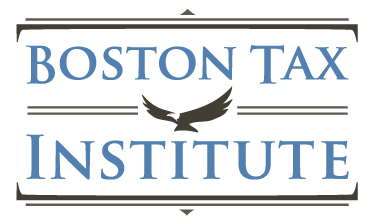Another decision in the struggle between not-for-profit sponsors and limited partners in “Year 15” of affordable housing deals came out last month. This one was SunAmerica Housing Fund 1050 v Pathway of Pontiac Inc, by Judge Arthur Tarnow of the US District Court of the Eastern District of Michigan. A new Twitter friend alerted me to the opinion. The helpful tweeter who does not want to be on the record, has not been happy with my previous coverage of the issue which you can read here, here, and here.
The Issue
The not-for-profit sponsors seem to be a bit more active in the court of public opinion than those representing investor interests. With the Pathway decision, they are now behind in actual courts. Pathway is the third federal district court decision to go against a not-for-profit sponsor. The issue is a little arcane. It is about how a federal provision Section 42(i)(7) – Impact of tenant’s right of 1st refusal to acquire property – (ROFR) should be interpreted under state law and in the context of partnership agreements. It is a tax law provision, but the IRS no longer has any skin in the game since the compliance period is over, when the ROFR is invoked.
The way the low income housing credit works is that it is doled out over ten years, provided affordability is maintained. For the next five years it is subject to recapture. Those two elements make up the fifteen year compliance period. There is a further commitment to at least an additional fifteen years of affordability, but that is not enforced by the IRS and there are sometimes escape hatches.
Preference For Not-For-Profits
The credit is allocated to states based on population and doled out by state housing agencies. Projects with not-for-profit sponsors have an edge. Typically the ROFR will be in the hands of a not-for-profit sponsor rather than tenants. The general partner interest and control over management of the project will tend to rest with the not-for-profit sponsor through a subsidiary or related entities. Their attitude is that the investors are getting their return through the tax credits, That view has some IRS support. Reg, 1.42-4 holds that Section 183 concerning activities not entered into for profit does not apply to Section 42. As they explained in issuing the regulation in 1992:
Although no explicit reference is contained in section 42 or its legislative history regarding its interaction with section 183, the legislative history of the low-income housing credit indicates that Congress contemplated that tax benefits such as the credit and depreciation would be available to taxpayers investing in low-income housing, even though such an investment would not otherwise provide a potential for economic return.
This is an answer of sort to my twitter friend who wrote me:
If Congress wanted the deals to be all about the credits, they would have allowed developers to sell them. Instead, they required investors to be partners, which requires them to share in other benefits.
At the end of the day, I am not inclined to cede the moral high ground to either side in this dispute. It is clear that there was IRS blessing for structuring deals that had no non-tax benefits for the investors. As it turns out the Section 42 ROFR mechanism is a flawed device for achieving that result when the investors don’t see it that way, Here is what happened in the Pathway case.
The Pathway Case
Pontiac ILF Limited Dividend Housing Association Limited Partnership (the partnership) owned a 150 unit elderly housing complex known as the Village of Oakland Woods in Pontiac (the property), Michigan. SunAmerica Housing Fund 1050, the plaintiff, is the sole limited partner (SunAmerica). Pathway of Pontiac, Inc and PV North LLC are the general partners. Presbyterian Village North (Presbyterian), a non-profit corporation affiliated with PV North held a ROFR and an option to acquire the property.
The option was at fair market value. The ROFR was at a bargain price based on the outstanding mortgage and exit taxes – a Section 42(l)(7) ROFR. In 2019 the general partners notified SunAmerica that Lockwood Development Company had submitted an offer to buy the property and that Presbyterian would have thirty days to exercise the ROFR. SunAmerica responded that it would like to continue to maintain its interest in the property and that it did not believe that the ROFR had been triggered.
SunAmerica sued for declaratory relief, breach of contract, breach of the covenant of good faith and fair dealing, and breach of fiduciary duty. The general partners brought counterclaims for breach of fiduciary duty and breach of partnership agreement.
Judge Tarnow ended up concluding that the Lockwood offer did not trigger the ROFR because it was not a bona-fide offer.
The record is replete with evidence that the Lockwood Proposal was not made in good faith and was merely put forward to create the appearance of an offer so that Presbyterian could exercise its ROFR. Particularly persuasive is the email from PV North to Lockwood including the memo from Defendants’ counsel explaining what it would take to trigger Presbyterian’s ROFR and telling Lockwood that they “really appreciate the effort.”
His final judgement on Pathway was pretty harsh.
Because Defendants solicited a non-binding pretextual offer from a third party and never intended to sell the Property, the RFOR was not triggered and Defendants breached the Partnership Agreement. Moreover, because Defendants’ attempts to trigger the RFOR were in bad faith and against the interests of Plaintiff, Defendants breached their fiduciary duty to Plaintiff as well as the covenant of good faith and fair dealing.
There will be an appeal of the decision. David Davenport will be working with local counsel on the appeal. Davenport is an authority on Year 15 issues and has recently started a firm BC Davenport focused on low income housing.
ROFR Doesn’t Get It Done
If the purpose of the Section 42 ROFR was to allow not-for-profit sponsors to acquire the property at a bargain price at the end of the compliance period the three recent decisions will pretty much eliminate that, if they are upheld, except when the investor is socially responsible and willing to play ball. A traditional right of first refusal is typically an opportunity to match someone else’s offer. The smartest real estate guy I know, and a former client, Daryl Carter told me that ROFRs are horrible things for owners to have on their properties. When you are talking about substantial complex properties, such as a 150 unit housing complex, making a serious offer involves a significant amount of work.
Knowing that there is somebody there who can take advantage of the effort you put into making a good offer is off-putting. If you know that there is somebody who because of your serious offer will have the right to grab the property at a below market price, it makes no sense at all to make a serious offer. And the courts seem to be saying that the fellowship of executive directors cannot solve the problem with a courtesy offer accompanied by a wink and a nod.
It is interesting that in the two cases where the not-for-profit sponsor prevailed over the investor, it was the investor that put the wheels in motion to get an offer. That seems less likely to happen in the future. In the three cases where the investor prevailed, the general partner attempted to trigger the ROFR acting as if it were in fact an option.
The Big Picture
I spoke with John Gahan of Sullivan & Worcester, who represents for profit sponsors who also are experiencing some problems of differing expectations in Year 15. What he sees as happening is that people are experiencing the results of poor decisions many years ago. His observation is that the time to think about Year 15 is before day 1 and that in all the agreements that are executed at the beginning “Words matter”.
The Low Income Housing Credit has been around for over thirty years now and there is no sign that it will it be eliminated. The Year-15 dispute is a sign that perhaps the program was not as well thought out as it should have been. Not-for-profits anticipated that the Section 42 ROFR would operate in a manner similar to an option, but the courts by sticking with a common law definition of ROFR are not letting that happen, when investors protest. The problem with that view is that it seems to make something that was included in the Code kind of pointless. Both sides argue that Congressional intent is on their side. Maybe it is time for Congress to clear it up.
Originally published on Forbes.com.
For great value continuing professional education. I recommend the Boston Tax Institute

You can register on-line or reach them by phone (561) 268 – 2269 or email vc@bostontaxinstitute.com. Mention Your Tax Matters Partner if you contact them.































































































